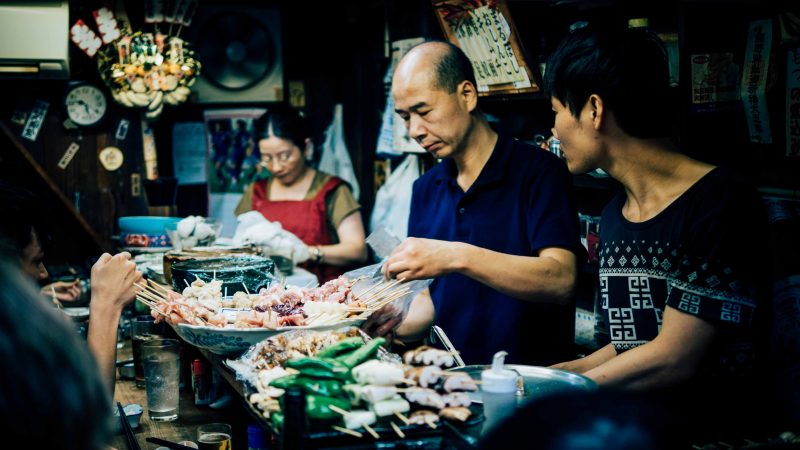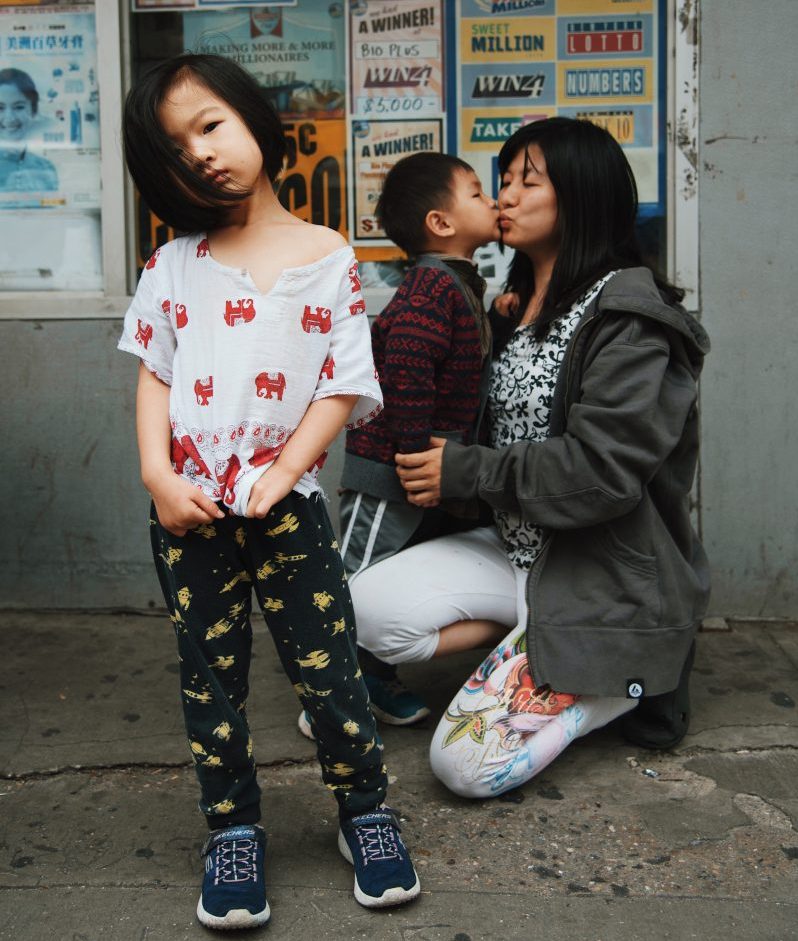Why Asian Parents Don’t Talk About Mental Health (and How to Heal From It)
Emily Wu Troung struggled with feelings of depression and isolation while growing up. A Taiwanese-American who had moved from Arkansas to California, Truong was taught that speaking about her problems would bring shame.
However, Truong eventually spoke up and told her family that she wanted to end her own life.
They responded that her thoughts were “selfish.”
For many Asian Americans, talking about mental health issues, especially to their parents, is like pulling teeth. Asian Americans are actually three times less likely to seek mental health services than other Americans, according to the Anxiety and Depression Association of America. Anxiety, depression, and mental health issues aren’t really topics discussed in Asian households and are considered taboo. Often times, we are told to “get over it” and “we had it so much worse than you, you should be grateful.”
Why do Asian parents not understand mental health?
Cultural differences are the root cause for many Asian parents’ lack of understanding and sympathy towards their children’s mental health concerns. Infamously known as “tiger parents,” parents from Asia are thought to be abnormally strict towards their offspring, speak to them harshly, and punish them if they are anything less than perfect. In 2010, a Vietnamese-Canadian student was sentenced to life in prison for hiring hitmen to murder her own parents as a result of her traumatically strict upbringing.

Asian Americans, and many other third culture children, are often spoken to in a way that would shock their White American counterparts.
“You really are useless.”
“Why are you so stupid? Do you even use your brain?”
“What was the point of raising you?”
“You’ve gotten fat.”
We asked experts for their insight on why Asian parents are so callous towards their children. Dr. Yesel Yoon, a clinical psychologist based in New York, told us that these parents may not even recognize what they’re saying is “harsh” and are simply parenting the same way they were treated.
“I don’t think a parent would necessarily see what they are saying or how they are saying their messages as ‘harsh’ and instead they may defend their words as ‘honest’ or ‘truthful,’” said Dr. Yoon.
“It’s all relative based on their experiences and for some parents…it is important to recognize the role of intergenerational trauma, parenting, and expectations about behavior. Asian parents often relay similar messages they have heard and do so in the same manner they were experienced. Their own experiences inform how and what they share with their children.”
The behavioral differences between Asian and Western cultures may have a deep lasting impact on a child’s outlook on life. Growing up, I idealized the families portrayed on 90s sitcoms such as “Full House”. No matter what kind of mistake or situation one of the Tanner children got themselves into, they would be met with a hug and affirmation of their love and worth. As a child I was left wondering why our families were so cruel in comparison, and why they didn’t “love” as us much as other families. I didn’t understand at the time that love isn’t universally shown the same way.

Dr. Ivy Hall, a clinical psychologist based in Berkley, California explained that an Asian parents’ strict behavior may be motivated by survival.
“For those who have immigrated to the U.S. or are refugees, their mindset is around survival. And to survive, you have to be strong and be able to weather the storm. For some parents, being harsh is to help their kids build resiliency, and is done out of love.” Dr. Hall explained.
Echoing a similar sentiment above, Dr. Hall added, “If Asian parents themselves were raised with this kind of harshness, it may be all that they know.”
Mental health who?
Another reason that Asian parents may not be supportive of their children’s mental health issues is that many Asian cultures simply don’t believe that they exist. Mental health is very much a Western concept with much of its development and theories originating in Western countries. In Asian cultures, it is a black and white concept. Feeling sadness and hopelessness is believed to be one’s own fault for not trying hard enough. Depression, anxiety, and other mental health issues do not hold the same significance in other cultures as it does in Western societies.
“What we consider ‘mental health issues’ are described in very specific medical model language from a very Eurocentric lens. This means that what we consider ‘depression’ and symptoms of ‘depression’ are described very specifically and not in a way that translates well or is recognizable to Asian parents,” said Dr. Yoon.
Other cultures, especially in Asia, tend to be superstitious and may blame that for negative feelings.
“In many Asian cultures, mental illness is attributed to a lack of willpower or weakness, a lack of emotional self-control. Other Asian cultures may view what we describe as mental illness as something caused by evil spirits, or a lack of harmony of emotions,” Dr. Hall commented.
How to heal and grow

It’s not always easy to seek help, especially if you’ve spent years of your life having your concerns ignored or invalidated. However, you are not alone. Together as a society, strides are being made to fight the mental health stigma. Here are steps you can start taking to heal from emotional distress and take control of your mental health.
Build a support system
Seek support from people you trust in a safe, supportive space. Whether it’s friends, siblings, or other family members, speaking up and acknowledging your concerns is the first step to dealing with them
According to Dr. Hall, “connection is a fundamental human need and feeling supported by those we feel connected with is important for healing.”
There are many groups of people who feel the same way that you do. Asian American-affirming spaces such as The Cosmos, are a supportive and safe group to talk about what you’re going through.
As Dr. Yoon puts it, “the healing power of validation from others is immense.”
Seek professional help
Having a professional mental health provider can help you process your emotions and thoughts, and eventually heal from them.
Sometimes it’s hard to comprehend everything that goes on in our lives. At times, we don’t even know why we feel or react a certain way. Having a trained mental health professional can help you cope with your feelings and provide the tools you need to take charge of them. Dr. Yoon expressed that it helps to have a third-party member, which alleviates stress when talking about family or friends. As a therapist herself, she hopes that a supportive professional will validate your stories and empower you.
“If one of the goals you have is to have a conversation with your family about your mental health concerns, a therapist may support you in that process and may even provide a shared space for the family to come together to have that conversation.”
Break the cycle with your parents
If you feel safe enough to do so, attempting to talk to your parents again about mental health illnesses can help break the cycle of misunderstanding. After all, your Asian parents could even have mental illnesses themselves but were never given the resources and knowledge that you may have now to treat them.
“See if you can get to a place of understanding, empathy, and acceptance. Our parents are doing the best with what they’ve got. Many have experienced trauma or other stressors themselves, and when our parents haven’t healed, the trauma gets passed down,” Dr. Yoon explained.
When we can reach common ground and empathize, we can help each other heal.
If you or someone you know is having a mental health crisis and is contemplating self-harm, please contact the National Suicide Prevention Lifeline at 1-800-273-TALK (8255).
The post Why Asian Parents Don’t Talk About Mental Health (and How to Heal From It) appeared first on NextShark.
✍ Source : ☕ NextShark
To continue reading click link or copy to web server. :
(✿◠‿◠)✌ Mukah Pages : 👍 Making Social Media Marketing Make Easy Through Internet Auto-Post System. Enjoy reading and don't forget to 👍 Like & 💕 Share!



















Post a Comment